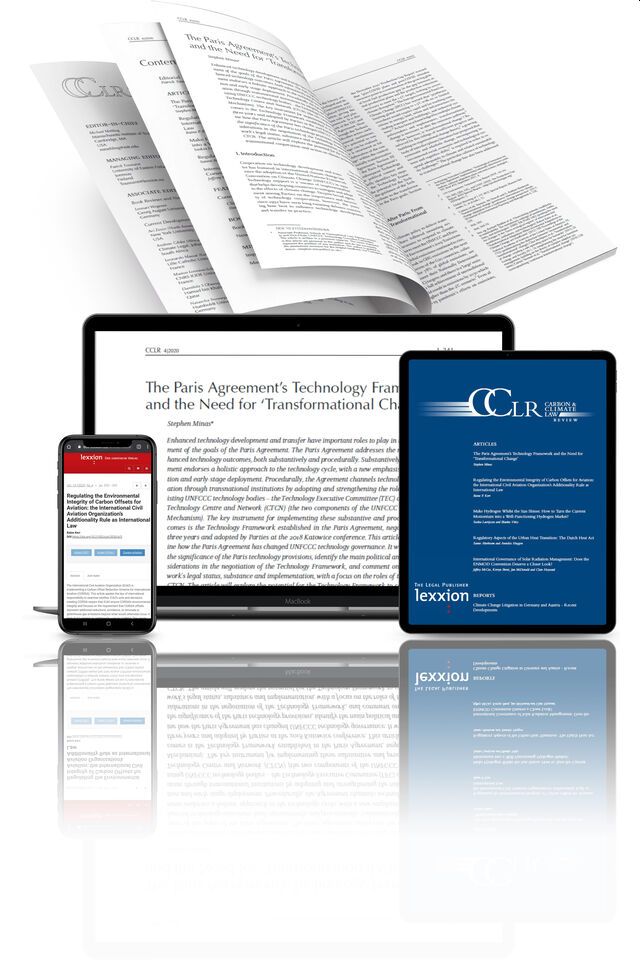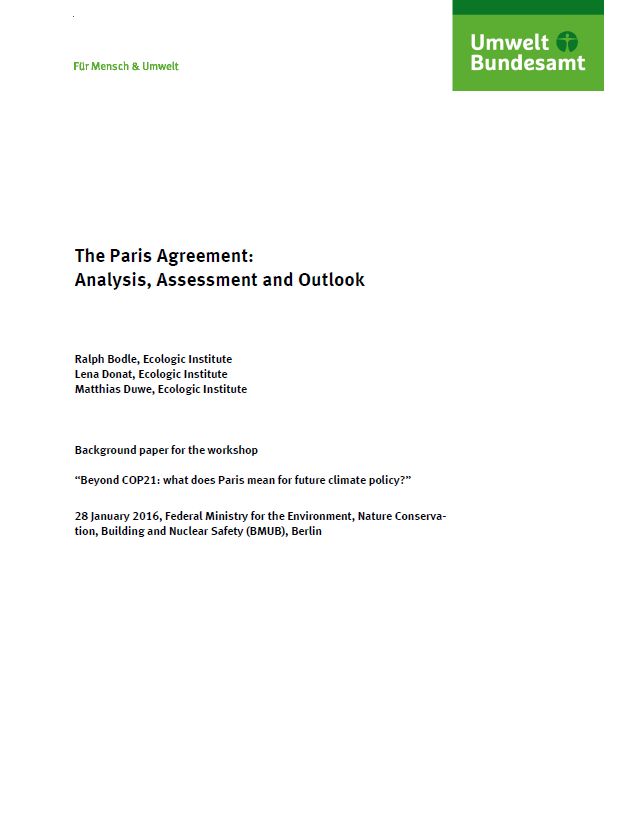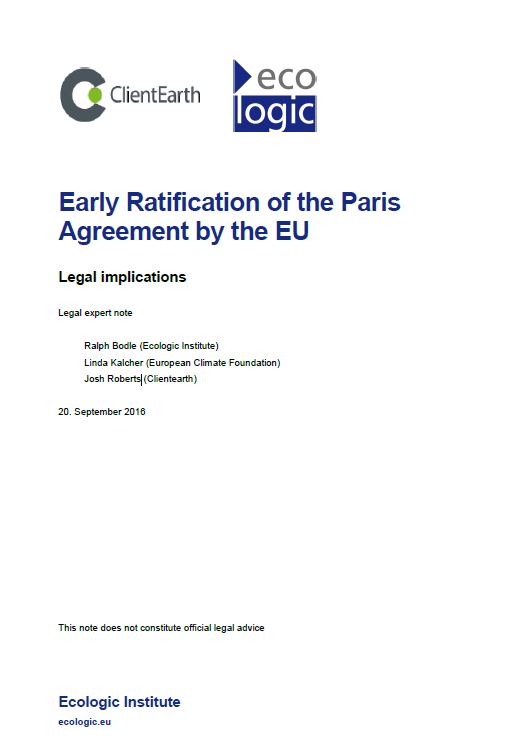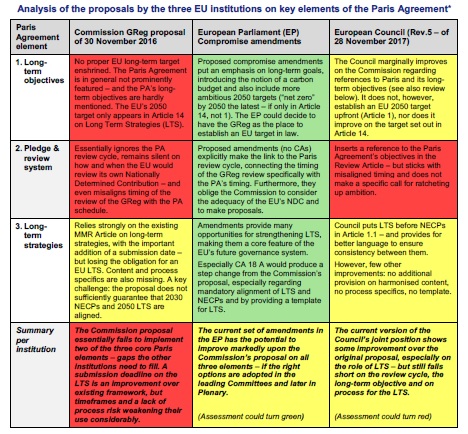
© CCLR - Carbon & Climate Law Review
The Paris Agreement: Rebooting Climate Cooperation
The Paris Agreement: Analysis, Assessment and Outlook
- Publication
- Citation
Bodle, R., Donat, L., & Duwe, M. The Paris Agreement: Rebooting Climate Cooperation ∙ The Paris Agreement: Analysis, Assessment and Outlook. Carbon Climate Law Review, Volume 10, Issue 1 (2016), pp. 5 - 22
The Paris Agreement is a landmark in international climate policy. Both developed and developing countries agree to take action, embedded in their national context and towards agreed transformational long-term objectives. It is also a watershed in differentiating between developing and developed countries. It breaks new ground by supplementing the principle of common but differentiated responsibilities, by its core obligations for all parties and by its range of techniques used to express differentiation. The core legal obligations are mainly procedural, as the Paris Agreement does not prescribe specific mitigation actions or emission levels. Instead, in five-year "cycles", all parties have to prepare and enhance individual climate plans (NDCs) and be accountable for their implementation. Despite limitations in the legal detail, the Paris Agreement's political narrative goes way beyond its legal text. The approach is an experiment that relies on the national determination of efforts combined with the persuasive impact of the transparency framework and the regular taking stock of progress. The future details to these elements could be crucial for safeguarding ambition.






